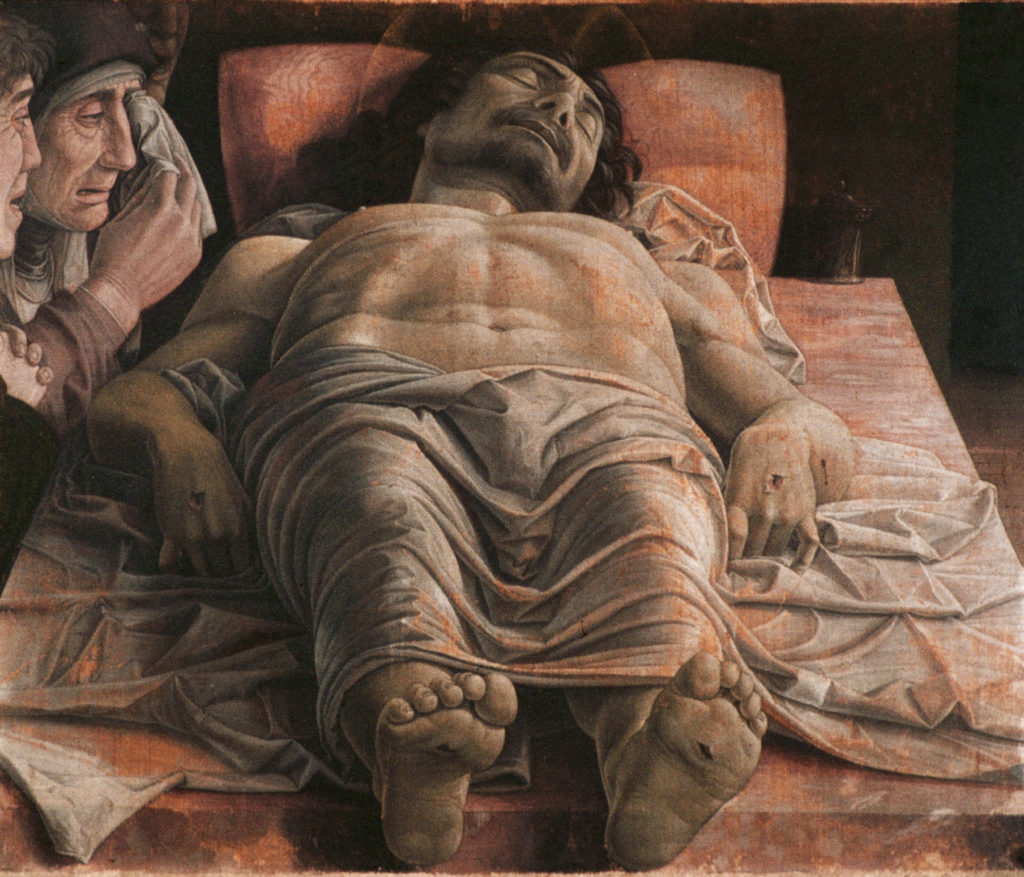The death of God (published in Italian, Osservatore Romano April 18 2017)

The fundamental core of the Christian faith – which clearly separates it from every other religion and unites it with atheism – is the death of God.
This simple unvarnished truth is often overlooked. Both those who proclaim the Christian faith in the existence of God and those who deny it, tend to put aside the cross.
What does it mean that God died on the cross? It is just a man who dies, or is God himself (or herself) who exists and dies?
If God is absolute being who establishes and creates everything, how can it die? How is it possible for being to empty itself to make room for “nothingness”, to become the negation of itself, absolute negativity?
If however God is also personal being, person who reaches out and supports another person, then God dies with every person who dies, only to be born again.
It can be said that absolute and fundamental being is not something immobile and abstract, but in continuous and dynamic reciprocity with nothingness. Being and nothingness do not deny each other, but they inter-penetrate. Being enters into nothingness and nothingness yields to being. This dynamism is “vital impetus” towards existence : it is thus that the existence of God is born, dies and comes back to life again.
What does it mean to “die”? And then, at the same time, to “live”?
It is written at the beginning of Genesis that Adam and Eve, as soon as they ate the apple from the tree of good and evil, realized to be naked. At the same time, they became “mortals“.
Everything, which comes to life, dies. But it can be really said that an animal “dies”? The animal simply “flows”: as it enters into life, it leaves it, to make space for new life. The animal does not know to be naked.
As men and women, we live and die in the self-awareness of our nakedness, the good and evil of which we are capable and from which generation of new life depends. We are concrete persons, capable ourselves of life and death, in well defined periods of time and space.
Self-consciousness is moral responsibility. The “aut-aut” of Nietzsche are the continuous choices that confront every Christian and atheist. We are all called to decide before the tree of good and evil. In order to decide, we must “take conscience“. Intellect and will are both necessary for the progress of human life, which inevitably leads to death to make space for new life.
With his intellect and will, man is “the image of God”, voice and hand of God and instrument of life – and death – throughout history.
Death of God is revelation and absolute mystery of his birth: freedom and omnipotence of being that affirms itself by vanishing.
The man who wants to replace God without wanting to die with him loses its roots : he is stripped of the being from which new life is born.
Dies – without being capable of new life – the man who fiercely denies the person and the existence of God, but also the man who follows a God that he has constructed for his own consumption, pretext for abuse and destruction of others.
Christ – and all those who followed him to his death on the cross – experienced the death of God, to live again with God.
Christ – like all Christians after him – are therefore in an open dialogue with all those who proclaim the death of God. Convinced atheists are also apostles of Christ. Even atheists, if they are not bent on affirming themselves, by proclaiming the death of God make space for God’s coming to life again.
These are not only words or abstraction. History is soaked with the blood of Christian martyrs as well as of those who opposed Christianity, the blood of those who died for their faith and those who denied any faith. On the blood and sacrifice of all of these rests the progress of humanity in time, its proud achievement of what we call “human rights“.
Even today, Christian martyrs as well as convinced atheists raise their voices in support of these rights. There are those who, in the land of Egypt as elsewhere, have the courage to proclaim their “atheistic faith”, risking their lives and the lives of their loved ones. Thus doing, and even without knowing it, these people also defend and proclaim the Christian faith in the death of God.
